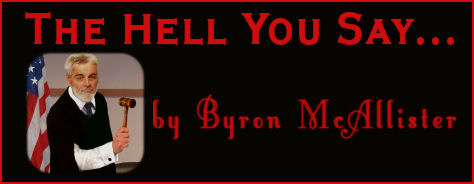 |
By The Numbers Funny things seem to happen when a reporter or an advertising copy-writer is faced with anything that has to do with numbers. The situation drives them batty. Either that or it brings out the slyness in their deeper nature. Example? Well, suppose the price of watermelon goes from fifty cents a pound to a dollar a pound. Then they may say it has increased by 100 percent; no problem with that. Or, wait just a minute, will they say it has increased by 200 percent, because the new price is two hundred percent of the old one? If they intend to impress us with the whopping increase, yes, that's what they'll say, but if they want to claim inflation isn't all that bad, they're more likely to say the price increased by 50 percent, since the old price is fifty percent of the new one. Years ago, we studied percents in the seventh grade and again in the eighth, but probably not everybody paid attention. The public is much better at straight numbers, right? Yeah-yeah. When they say that the population of Smallville increased from 3,000 to 12,000 between the 1960 census and the 2000 one, what will they say, assuming they avoid percents, and also don't want to bother with the actual numbers? How about, "the population is now four times more than in the old census." Or, wait: how many more people are there than there were? Nine thousand, right? So is that only three times more? Strictly, the latter is probably right. The population grew to four times as many as before, but that's different. However, a person wanting to emphasize the enormous growth isn't going to pass up the opportunity to say "four times more," which suggests, to one not accustomed to skepticism, that maybe the population became five times as big as before. Well, few people would come out with the number "five" in that situation, but rather they'd just get a stronger impression of growth than if the expositor had only said, "three times more." And then there's the flexible expression, "ten times as small." What does it mean? Is it or isn't it the same as "one tenth as big"? Compound this with the ambiguity introduced when somebody writes "ten times smaller than." Let's see: take the original size, say 20 cubic feet, and take ten times that much away, so as to get "ten times smaller than" the original, and, uh, do journalists and copy-writers understand negative numbers? Somehow I don't think we need to know: they are really just saying "a lot smaller than, and we here in the office lack the education needed to say exactly how much smaller than, and we don't think readers care much anyway, as long as they are impressed." Oh, by the way, I mentioned in some previous columns, back when practically everybody was running for President, that I was doing so also. Up to a million readers have responded with questions about my proposed policies, and reassuring me that they are seeing to it that I am on the ballots of up to fifty states. Of course, readers of the present column should be aware that "up to" is a wee bit ambiguous when used in journalism and advertising. Sort of like "starting at," which means the price listed is the least you can expect to get by with, and if you want a quality product, it will cost you more, not saying "up to" how much. In my pretentious political claims in this paragraph, I've noted that "up to" is generally used synonymously with "not more than," so that the number of reader responses I received, is, thank goodness, much smaller than a million. In fact it's zero, and I prefer to leave it that way. Besides that, "up to fifty states" also means maybe a few but maybe not, and most likely not as many as fifty. As you might guess, that number is also zero. Thank goodness. The result, no doubt, of deciding to spend zero dollars on the campaign, but if I change my mind and put a buck into it, will that be a billion times more, a billion times as much, or what? The answer is left as an exercise, to use, up to, all of the reader's time for the rest of, up to, a week. |
|
|
Past issues and stories
pre 2005.
Subscribe to our mailing
list for announcements.
Submit your work.
Advertise with us.
Contact us.
Forums, blogs, fan clubs,
and more.
About Mysterical-E.
Listen online or download
to go.
|
|
|
 |
 |

